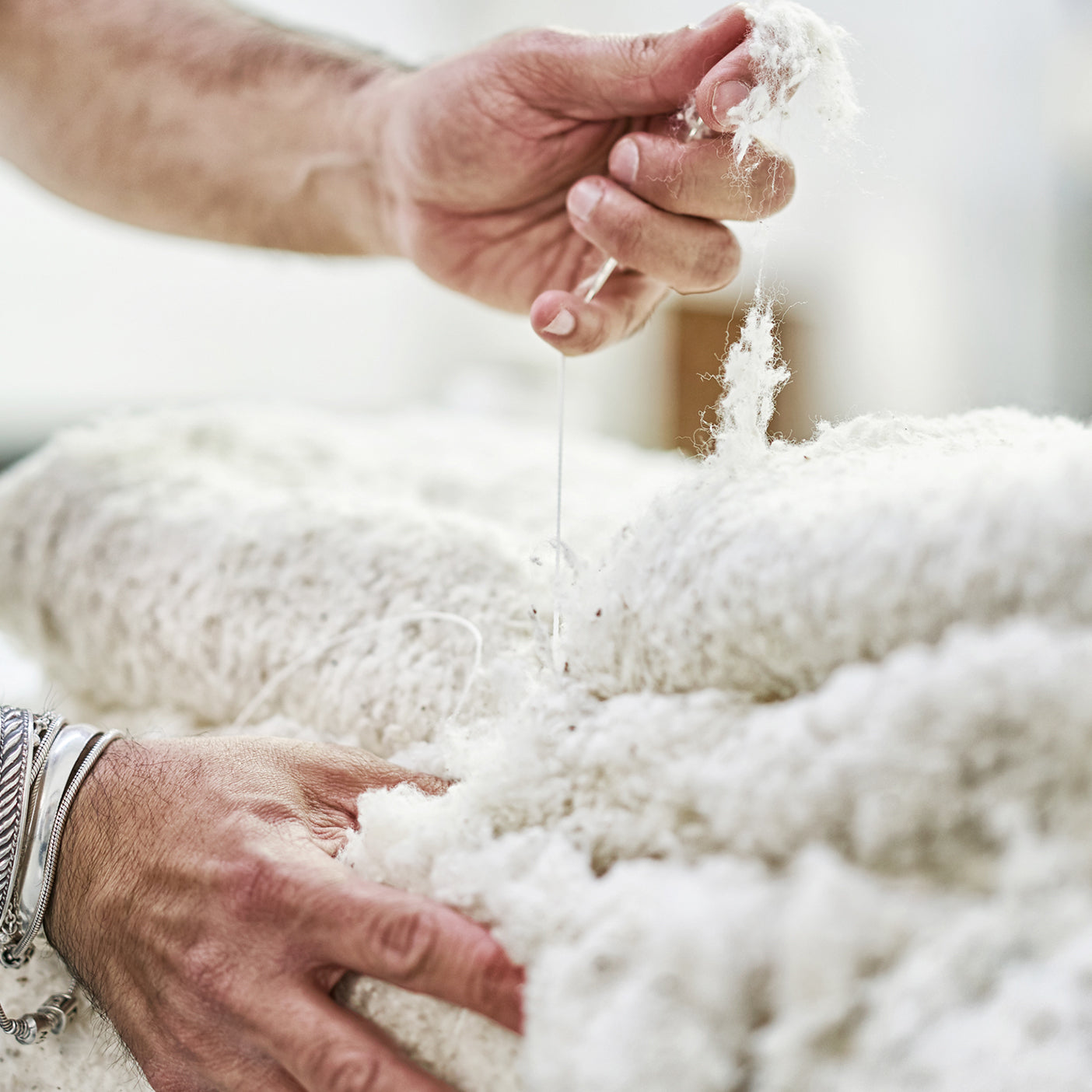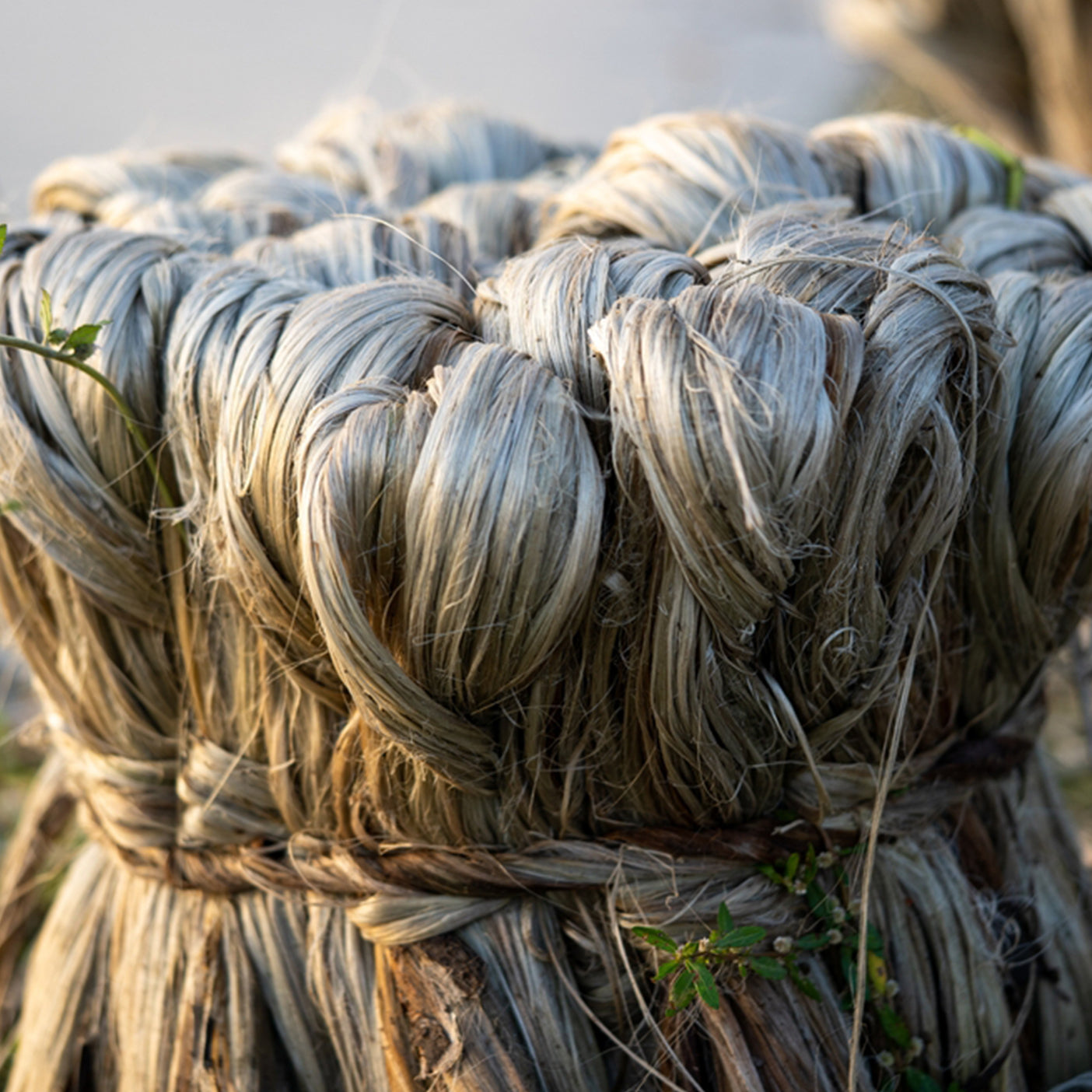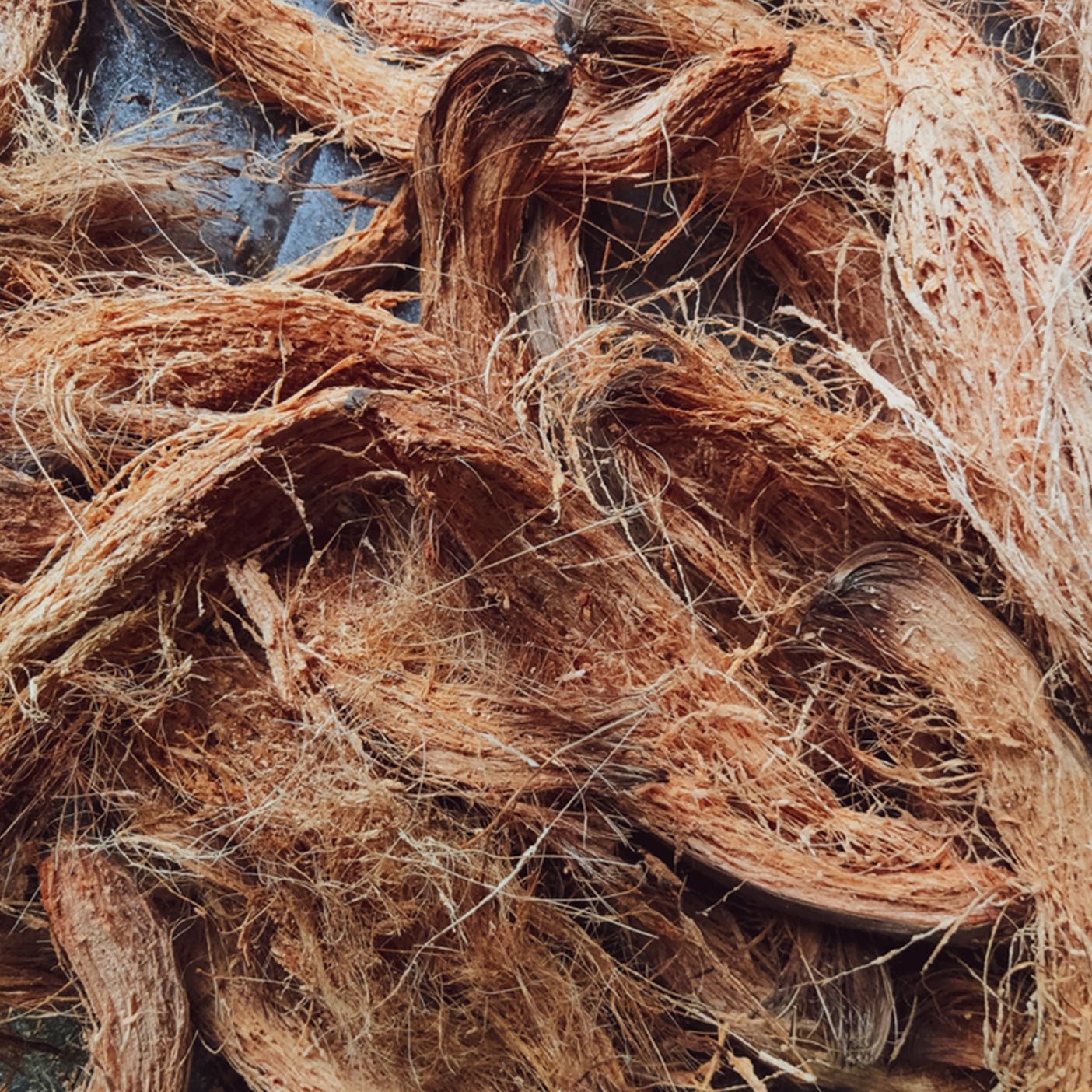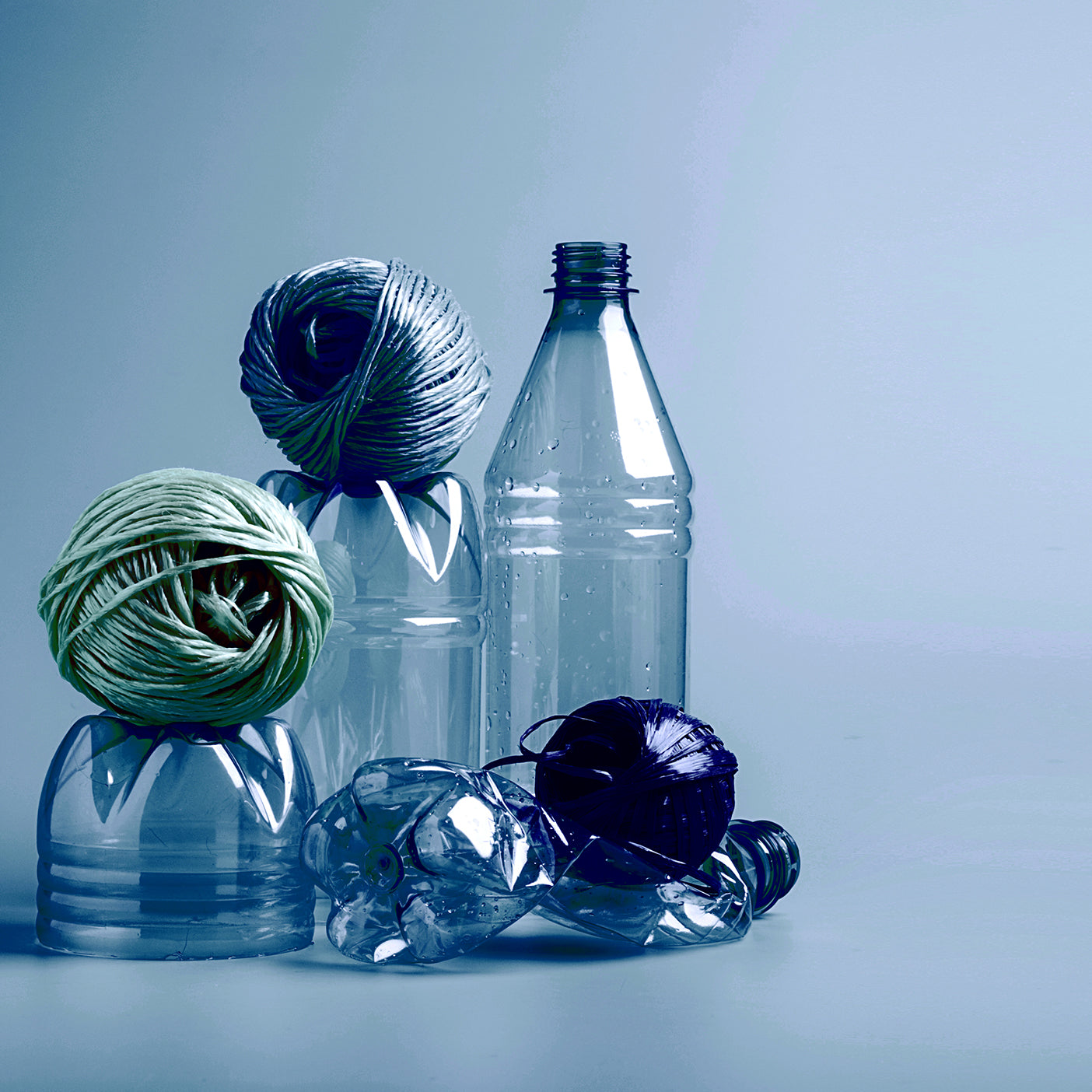If you’ve switched to organic cotton sheets, you’re already sleeping better—literally and consciously. But here’s the thing-these aren’t just any sheets. They’re crafted with care—and they deserve the same in return.
Treating them right doesn’t just keep them clean—it helps them stay soft, last longer, and do what they were made for: give you safer, more sustainable sleep night after night.
Let’s walk through the best ways to care for your organic cotton bedding so it stays breathable, beautiful, and better for years to come.
Why Organic Cotton Feels Different (And Better)
Organic cotton is produced without harsh pesticides or synthetic fertilizers. That means no residue, no irritation, and no environmental harm.

If your sheets are GOTS-certified, even better. This globally respected certification covers the entire journey—how the cotton is grown, how it's processed, and even how workers are treated. It guarantees no toxic dyes, no chemical finishes, and fair labor practices.
Because organic cotton isn’t chemically treated, the fibers stay longer, stronger, and smoother. These sheets don’t just feel amazing now—they get even softer over time. But that comfort depends on how you wash and maintain them.
Organic Cotton Sheet Care Tips To Keep Them Looking New
Let’s be real—most of us just toss our sheets in the wash without thinking. But with organic cotton, a little care goes a long way. Here’s how to wash them the right way:

● Use cold or lukewarm water. Stick to 86°F to 104°F. Hot water can cause shrinkage and weaken natural fibers.
● A gentle cycle is best. Avoid rough spins that tug at threads.
● Wash separately. Especially important if your sheets are naturally dyed—this prevents color bleeding and keeps the fabric bright.
● Don’t overload the drum. Give your sheets room to move so they get evenly cleaned.
● Aim to wash them once a week. Too frequent washes break down the fibers; too infrequent, and oils and bacteria build-up.
It’s all about balance—keeping them clean without overworking the fabric.
What to Use (and Avoid) in the Wash
Detergent plays a bigger role than you might expect. Many mainstream laundry products are packed with ingredients that can damage your organic bedding over time.
Avoid:
● Optical brighteners (they coat the fibers)
● Synthetic fragrances and dyes
● Harsh enzymes and sulfates
Go for:
● Fragrance-free, plant-based detergents
● Biodegradable or certified organic formulas
● Anything labeled “sensitive skin” is usually a safe bet
Prefer DIY?
Here’s an easy, natural method:

● ½ cup Epsom salt
● 1½ cups baking soda
● 1½ cups washing soda
● Optional: 2-3 drops of essential oil (like lavender or lemon)
Mix and store in a sealed jar. Use 1–2 tablespoons per load. This DIY mix is fabric-friendly, skin-safe, and planet-approved.
Drying & Storing: Make Them Last Years
Caring for organic bedding doesn’t end at washing—it’s just as important to dry and store your sheets properly to protect their fibers and keep that soft, breathable feel you love.
Air Drying: Gentle and Green
Whenever possible, line drying is your best friend.
● Use a drying rack or outdoor clothesline—this reduces energy use and is gentler on fabric.
● Sunlight is a natural disinfectant: The UV rays can help kill bacteria and leave your sheets smelling naturally fresh.

● But don’t leave them in direct sunlight for too long, especially if your sheets are dyed. Prolonged exposure can cause fading. Bring them in as soon as they’re dry.
Using a Dryer? Keep It Low & Light
Let’s face it—sometimes, line drying isn’t an option. But when used:
● Set your dryer to the lower heat setting. High heat can cause shrinkage, fiber breakdown, or pilling.
● Use a short cycle to reduce exposure to heat and motion.

● Toss in wool dryer balls—they help separate the fabric, prevent static, and speed up drying.
Extending the Life of Your Sheets: How to Store?
Once your sheets are clean and dry, don’t undo all that care with poor storage. Here's how to keep them fresh:
● Avoid plastic bins or vacuum bags. Organic cotton needs to breathe.
● Use breathable cotton storage bags or natural baskets.

● Store them in a cool, dry spot—avoid humid or drafty areas.
● Add natural scent boosters. A sachet of lavender, cedar chips, or even dried eucalyptus will keep them smelling clean.
Also, fold it neatly but loosely. Overstuffing drawers or shelves can create unnecessary pressure and creasing.
Stains Happen—Here’s What to Do
Even with the best care, life leaves its mark—sweat, body oil, tea spills, and the occasional late-night snack accident. Don’t stress—natural stains just need natural solutions::

● General stains: Sprinkle baking soda, spray white vinegar, and let it fizz. Scrub gently, then rinse and wash.
● Sweat or oil stains: Soak in cold water with lemon juice or a teaspoon of mild detergent for 30 minutes before washing.
● Blood stains (for white sheets only): Mix hydrogen peroxide and baking soda. Apply, let sit for 15–20 minutes, then rinse and wash.
Avoid These Sheet-Killing Habits
You might be following all the right steps, but these common habits can still shorten your sheets' lifespan:
● Using fabric softeners or dryer sheets: They create a build-up that reduces breathability.
● Washing sheets with heavy stuff like jeans or towels: They cause friction and pilling.
● Using high heat in the dryer: This breaks down fibers faster than anything.
● Letting sheets sit wet in the washer: This leads to mildew, mold, and musty odors.
Want Your Sheets to Last? Here’s How.
Extend the life of your bedding with these simple habits:
● Rotate between 2–3 sets. This gives each set a break and reduces wear.
● Fold gently. Don’t shove them into tight spaces or overstuff linen closets.
● Skip frequent ironing. A light smooth-out with your hand while folding is enough.
● Long-term storage? Wrap it in muslin or cotton fabric, not plastic.
Think of it as building a routine that’s gentle on your sheets and great for your sleep.
Not All “Organic” Labels Are Equal—Here’s How to Be Sure
If your sheets aren’t performing—pilling, roughness, lack of breathability. The problem might be the product—not your care routine. Here’s how to spot real organic quality:

1. Look for GOTS certification.
This is the gold standard. It covers the entire supply chain—from how the cotton is grown to how it’s finished.
2. Check for labels or fabric content.
Watch for blends. “Organic cotton blend” may include synthetic fibers.
3. Review the brand transparency.
Trustworthy brands clearly state their materials, certifications, and sourcing practices.
Delara: 100% Real Organic Comfort You Can Trust
At Delara, organic isn’t just a buzzword—it’s the baseline.
● Every sheet is made with 100% GOTS-certified organic cotton.
● No chemical finishes, no hidden blends—just pure, breathable comfort.
● Our cotton is ethically sourced, and our process ensures fair treatment for every person involved—from farm to finish.
● You’ll love how they feel from day one—and how they get softer over time.
● Backed by certifications, care, and a commitment to doing things right
We don’t chase trends—we build better basics for your bed, your health, and the planet.
Ready to Feel the Difference?
Explore Delara’s Organic Cotton Bed Sheet Sets, which are crafted for softness and sustainability. Sleep and feel good in every way.









Leave a comment